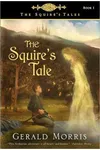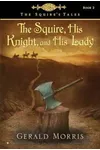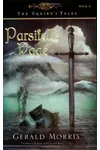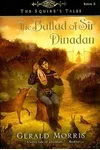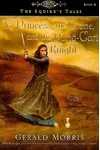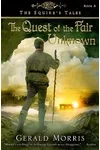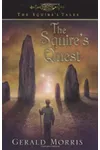Step into the enchanting world of The Squire’s Tale series, where knights, magic, and a hearty dose of humor bring Arthurian legends to life for young adult readers! Penned by Gerald Morris, this ten-book saga follows the adventures of Sir Gawain and his squire Terence, weaving classic tales with fresh, witty twists that make Camelot feel like a vibrant, magical playground. Perfect for fans of fantasy and coming-of-age stories, this series is a delightful gateway to the Round Table’s timeless charm.
With a lighthearted tone and a knack for poking fun at medieval absurdities, Morris crafts a world where chivalry meets cheeky banter. Whether you’re a teen seeking adventure or an adult craving nostalgic fantasy, The Squire’s Tale promises a rollicking ride through a reimagined Arthurian realm.
How The Squire’s Tale Began
Gerald Morris, a minister and storyteller from Wisconsin, launched The Squire’s Tale in 1998, inspired by his love for Arthurian legends and a desire to make them accessible to younger readers. Drawing from classics like Sir Thomas Malory’s Le Morte d’Arthur, Morris reimagined the tales through the eyes of Terence, a new character who grounds the epic myths in relatable, youthful perspective. His goal? To restore the honor of knights like Gawain, often overshadowed by Lancelot, while infusing humor and heart.
Morris’s background in retelling Greek and Norse myths to children fueled his approach, blending historical fidelity with modern sensibilities. The result was a series that honors its medieval roots while inviting readers to laugh at the quirks of chivalry and courtly love.
The Heart of The Squire’s Tale
The series kicks off with The Squire’s Tale (1998), where orphan Terence becomes Gawain’s squire and uncovers his mysterious fae heritage. In The Squire, His Knight, and His Lady (1999), the duo tackles the Green Knight’s challenge, with sparks flying between Terence and the spirited Lady Eileen. The Savage Damsel and the Dwarf (2000) shifts focus to Lady Lynet, who defies damsel stereotypes with wit and bravery. Finally, The Legend of the King (2010) closes the saga with a bittersweet finale, uniting characters against Mordred’s treachery.
Morris’s tales blend adventure, magic, and coming-of-age themes, set in a Camelot rich with faeries, enchanters, and quirky knights. His humorous style—think Terry Pratchett meets medieval fantasy—pokes fun at courtly love while exploring loyalty, identity, and honor. By centering squires, pages, and women, the series offers fresh perspectives on familiar myths, making them relatable for modern teens.
Themes of self-discovery shine as characters like Terence grapple with their origins, while the series’ light tone never shies away from the legends’ darker edges, like Camelot’s inevitable fall. This balance of whimsy and depth keeps readers hooked across the ten novels.
Why The Squire’s Tale Resonates
The Squire’s Tale series has carved a niche in young adult fantasy, praised for making Arthurian legends accessible and fun. Fans on platforms like Goodreads laud its humor and heartfelt characters, with many rereading the books for their nostalgic charm. Morris’s ability to humanize knights and elevate lesser-known figures like Gawain has inspired a loyal following, especially among teens and tweens craving epic yet approachable tales.
Its lasting appeal lies in its blend of adventure and introspection, offering a Camelot that feels both magical and real. By modernizing medieval tales without losing their essence, Morris ensures the series remains a beloved entry point to Arthurian lore for new generations.
- Publication Years: 1998–2010
- Number of Books: 10
- Notable Recognition: Named to ALA’s Best Books for Young Adults (2000, 2003)
Ready to joust with knights and unravel fae mysteries? Grab The Squire’s Tale and dive into Gerald Morris’s enchanting Arthurian world!
